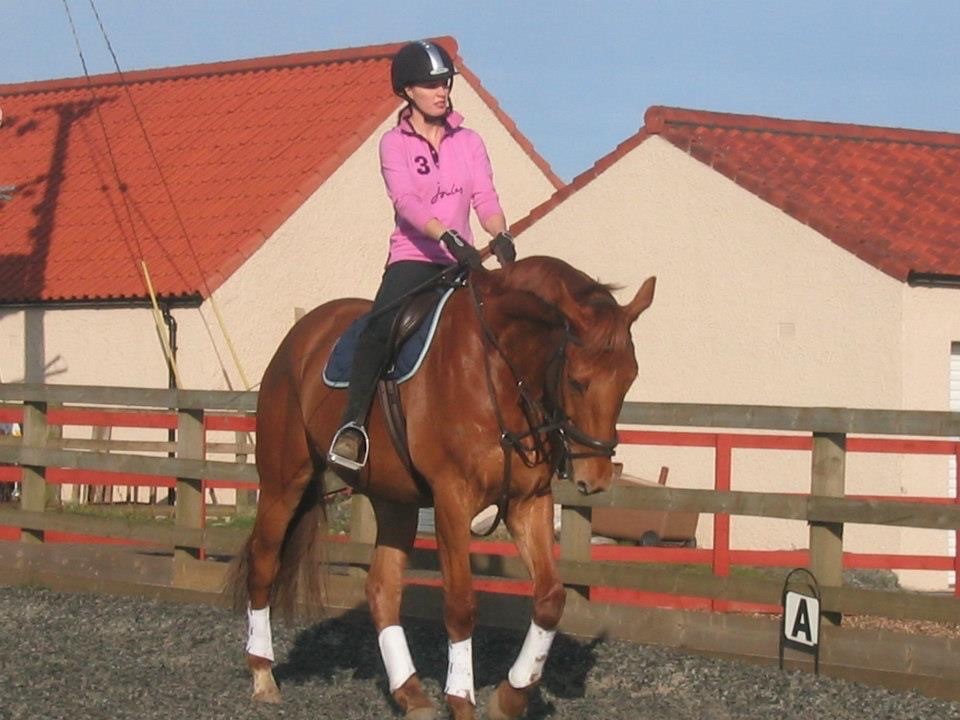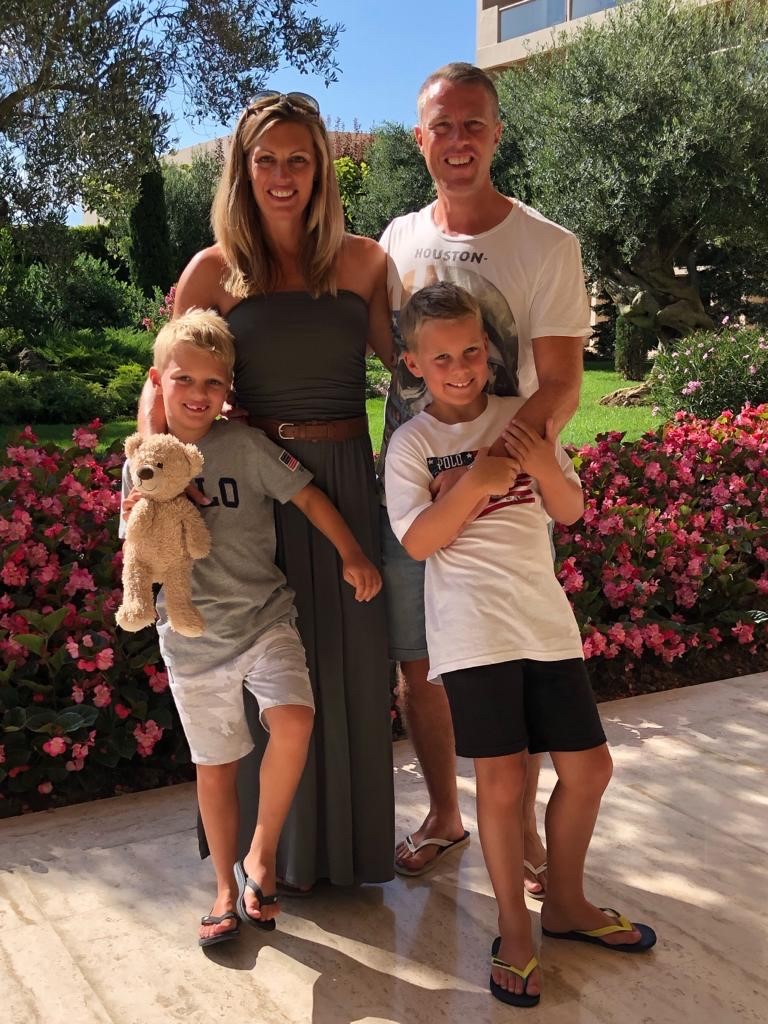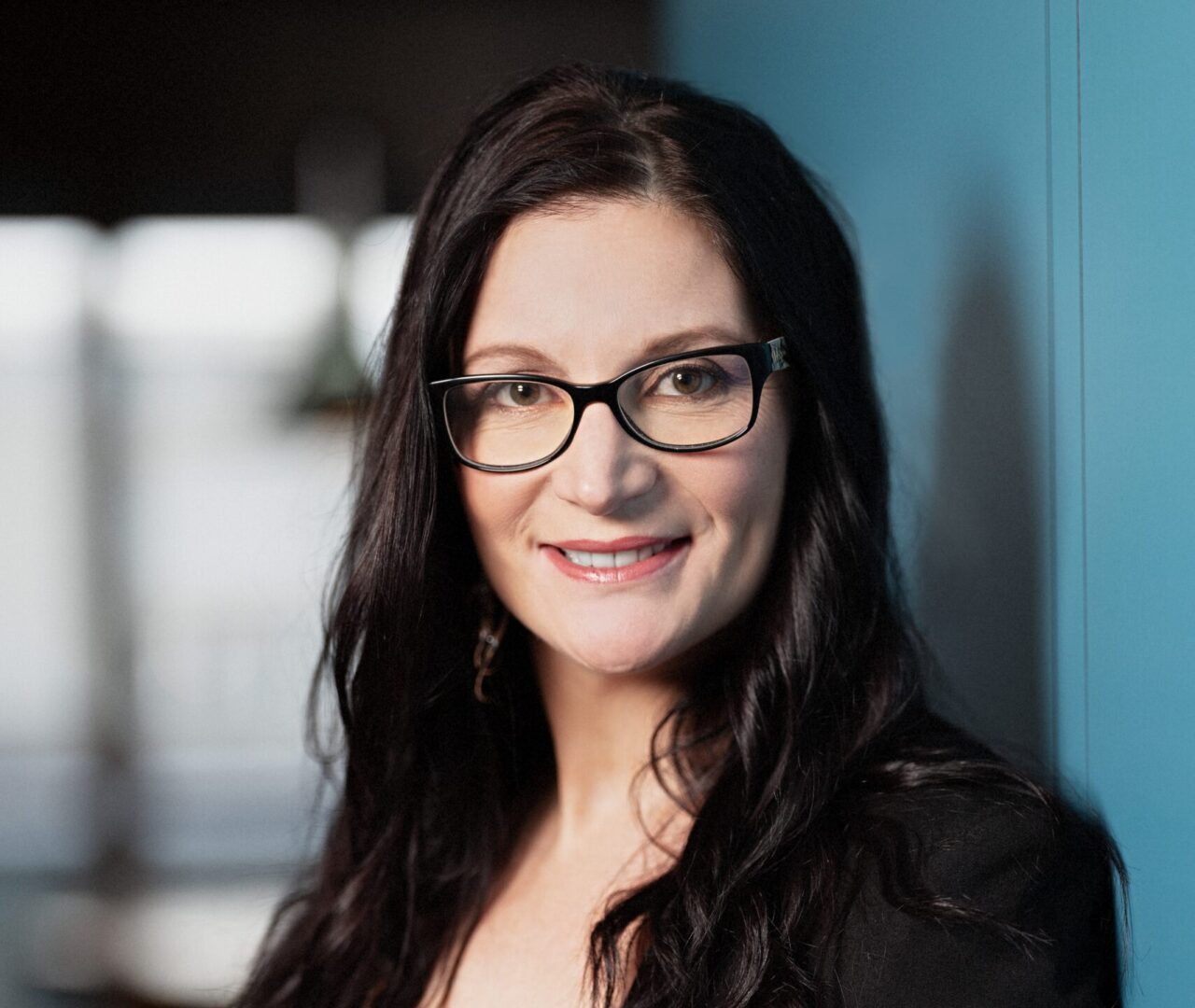Our interview with Fleur Scott

Tessa: When did you start your career in assessment and development, and talent management? Why did you want to follow this path?
Fleur: I actually always thought I wanted to be a teacher (like my mum) but after taking A Level Psychology I then decided that I wanted to become an Education Psychologist instead – working with school children. I wanted to use psychology to help people and working with children at a young age seemed to make perfect sense. At that time to go into Ed Psych you had to qualify as a teacher first. I was accepted onto a PGCE course at University, but my mum suggested it might be a good idea for me to do some work experience in schools first… let’s just say after that first (and only) day of work experience in a local primary school I realised it REALLY wasn’t for me! That’s when I realised that I would be better suited to working with adults in a business context (I like to drive change and see outcomes) and I was lucky enough to switch over to a masters in Occupational Psychology instead.
“If we have the right people in the right roles at the right time, not only will organisational performance increase but the people within them will also feel happy, satisfied, and will thrive”
I’ve been working as a consultant in the behavioural assessment and development space for almost 20 years now. My first ever role following the completion of my masters was actually an internal role with the NHS but after a very enjoyable 2-year fixed term contract I moved into my first consulting role for an organisation which specialised in the Pharma and Life Sciences sector. Since then, I’ve worked for several different consultancies (5 in total!) – each giving me a valuable and unique insight into different sectors, industries and client challenges along with exposure to a range of different consulting approaches, methodologies and solutions to meet various client needs. It did however take me almost 10 years to reach Chartered status post graduating with my Masters….there’s a rather distressing story in there involving a laptop that hadn’t been backed up and which met a very inconvenient and untimely demise which is a completely different story for another time!!
If I’m honest I chose a career on Occ Psych consultancy initially because it sounded exciting and interesting and I got to travel the world (I’ve been lucky enough to work in North and South America, the UAE and all over Europe so far). As I’ve got older however the dial has shifted for me – it’s less focused on what I personally get out from the role but more about the impact that I am able to have on others. Helping to identify individuals who are a great fit for a specific organisation and role is hugely satisfying, as is the development of people and teams to enable them to fulfil their highest potential. At the end of the day if we have the right people in the right roles at the right time, not only will organisational performance increase but the people within them will also feel happy, satisfied, and will thrive.
Tessa: You’ve stepped out of a 20-year corporate consulting career path, and into the entrepreneurial world. What drove you to make the change?
Fleur: I’ve always had a dream of being my own boss and building something from scratch but have previously felt too terrified to make the leap. Job and financial insecurity were two things I just couldn’t have risked. I still can’t be open to such a risk if I’m honest (mortgage, young children etc.) but following a full year of COVID and after watching many friends and colleagues lose their jobs during these recent uncertain times, I realised that NO job is safe.
“With Talent Reimagined, our focus is on looking at the whole system to identify which part(s) are truly broken before deciding what it is that needs to be addressed”
I saw organisations were starting to shift towards working more and more with smaller consultancies and independent consultants and I decided to ‘feel the fear and do it anyway!’. The opportunity to join Tess at Talent Reimagined was also a huge pull. We worked together around 14 years ago at another consultancy and have remained friends ever since so I knew we would work well together. I also am fully bought into the Talent Reimagined purpose and vision. For years I have worked with clients who ‘need a new assessment tool’ or ‘want to redesign an assessment centre’ but rarely did I get the opportunity to really get under the skin of the true problem they needed to solve or fix. I’ve spent a lot of time ‘fitting sticking plasters’ but now with Talent Reimagined, our focus is on looking at the whole system to identify which part(s) are truly broken before deciding what it is that needs to be addressed. For example, I get asked a lot about how the diversity of talent pools can be improved and often the assumption is that a different assessment tool is required. But what about the talent attraction strategy? The EVP? At what stage in the process is diversity being affected? How have hiring managers been trained? Once we have analysed the end-to-end talent acquisition process can we be confident about what needs to change.
Tessa: Something you are passionate about is ‘making a difference to organisations and the people who drive them’. Can you elaborate on that further?
Fleur: We spend on average a third of our lives at work and over the years I’ve personally experienced and also observed as a third party the good, the bad and the very ugly in terms of the work environments which impact significantly on productivity, engagement and general wellbeing of employees.
“I love to imagine a world within which work doesn’t feel like work“
I love to imagine a world within which ‘work doesn’t feel like work’ – some call this being ‘in flow’. I’m sure everyone can think of a time when we have got out of bed looking forward to the day ahead at work, energised and optimistic; when the hours have flown by due to feeling fully immersed in the work we are doing; when work just didn’t feel like work. Contrast this with the feeling of ‘Sunday dread’, or when you have to drag yourself out of bed with a knot in your stomach, or when you have resented working late and when you have checked the clock a million times throughout the day wishing it would be over. I think it’s quite clear which situation is more enjoyable for the individual but also the situation in which the individual will be far more productive at work.
It is entirely possible to achieve a happy and engaged workforce ‘most’ of the time (let’s be honest – all of the time would be unrealistic). We do this by making sure that we attract and select the right people, that we develop our internal talent effectively, recognise achievements and that leaders are able to create a positive and nurturing environment where team members are held accountable and feel empowered, enabled and trusted to do their jobs.
Tessa: What are some of the trends you have witnessed in the assessment industry, and what are some of your predictions for the future?
Fleur: SO many things have changed! When I qualified to use and interpret psychometrics – ability and personality assessments were paper and pencil! I still remember running assessment centres with candidates sat in a big room in exam conditions completing their ability and personality assessments on paper – and the marking required by assessors afterwards was so time consuming. Personality assessments came with a scoring stencil!
“I’m not sure we will ever see again organisations foot the huge expense of shipping people sometimes from all over the world to a centralised in-person assessment or development centre when they can be run so effectively virtually”
So, the biggest change I would say especially for early careers (generations Y, Z and beyond) has been the move to more technology-led, engaging and immersive assessments – whether that be online game based assessments or even virtual reality. The whole assessment process, especially for selection purposes, has become much more automated with candidates applying online and then being progressed through various assessment stages automatically via an online assessment portal. Other trends have been a shift to strengths-based assessments and a focus on emotional intelligence and learning agility along with challenges around whether competency-based approaches really are the most effective for predicting future potential.
The last 12 months of course has seen the move to 100% virtual assessment with an increased demand for virtual interview platforms and virtual assessment centres. I’m not sure we will ever see again organisations foot the huge expense of shipping people sometimes from all over the world to a centralised in-person assessment or development centre when they can be run so effectively virtually.
In terms of the future, I see more of the same – more technology innovations and a continued focus on processes which enhance D&I, provide better candidate experience and measure future potential not just performance. I’m not quite ready to embrace AI tools which analyse and draws conclusions from social media activity just yet but who knows what the future might bring! Certainly, there needs to be a continued focus on technology and virtual assessment given the truly global reach we now have in terms of talent with hybrid workforces and huge increases in home working.
Tessa: You have worked with some amazing organisations around the world, what are some of your best memories of those engagements and why?
“The best projects though are the ones where we can make a real impact, see the measurable change and value that has been delivered by the work we have done”
Fleur: Oh wow – too many to list! Some of my most memorable client engagements in terms of novel personal experiences must include walking into the Natural History Museum right past the dinosaur skeleton on my way to the offices to run a development centre for high potentials; flying to Rio de Janeiro for my first day of work at Hudson Global Resources to help run a graduate assessment centre for a global packaging company; and having a private tour around The World of Coca-Cola in Atlanta ahead of the kick off of a new client project. The best projects though are the ones where we can make a real impact, see the measurable change and value that has been delivered by the work we have done.
Tessa: You have mentioned before your energy to deliver solutions for clients which will add tangible value. How do you define tangible value?
Fleur: This is a difficult one and it is the absolute Holy Grail as a consultant but one I’m completely committed to trying to deliver for my clients. Obviously, the delivery of high quality solutions and service is an absolute given but it always amazes me how frequently quality slips and organisations end up looking for new suppliers because of bad experiences.
In addition to this, in order to understand if a solution has added real bottom line value it’s so important at the outset of any project to first help clients understand what the desired outcomes will be – what can be measured to demonstrate the impact of the intervention? To do this you need a pre-intervention baseline measure and a post-intervention evaluation at the very least.
I would say I am seeing clients being more open to this now especially with the continued focus on D&I and the need to demonstrate that assessments do not cause adverse impact and also help to diversify talent pools. At Talent Reimagined we work with our clients at the beginning of any project to build a commercial business case for change by analysing current state and then making projections for cost, time and resource savings post intervention.
Tessa: You’re a career focused mum of two energetic boys, how do you keep balance across work and life?
“Anyone who knows me knows that I am a mum first, always”
Fleur: Anyone who knows me knows that I am a mum first, always. I have consciously carved out a career that has allowed me to balance work and home life as it has always been so important to me (I admit however – I don’t always get it right!!). In addition to the boys (including my husband), I have a dog and also a horse so life is pretty full on! I lost my mum to cancer when I was 25 so that was a big wake up call for me that life is really far too short.
I love my work, but I also know my boys will not need me so much as they get older so for now whilst they are young I want to be around for them as much as I can. I have been lucky enough to work for many very flexible and supportive organisations which have allowed me to work from home and flex my hours. Obviously, there are always times when the days are long and work creeps into evenings, holidays and weekends but having that autonomy over how and when I work really helps.

Tessa: What advice do you often find yourself passing on to your clients?
“Spending time visioning about desired future state is invaluable – by doing that we then have a shared goal to work towards”
Fleur: All of my clients are different and I don’t think there’s one particular stand out thing that I advise on a regular basis but I do find that at the beginning of any client engagement I tend to turn ‘detective’. Often what a client wants is very different to what they really need (or their budget allows) so I have to ask lots of questions to uncover their real burning platform and the problem to be solved.
Spending time visioning about desired future state is invaluable – by doing that we then have a shared goal to work towards. I frequently work with Talent teams and they tend to always be very stretched with lots of different and changing competing priorities. Helping them to think through their priorities and also where different activities could link and complement each other to enhance consistency and economies of scale is important too as I often witness a lot of duplication of effort (e.g. assessment for selection being treated separately to assessment for development or succession planning…different behavioural frameworks for different parts of the business or levels etc).
Tessa: What are your hopes for the future of work?
“We are in a place now where talent can literally be anywhere so it would be very sad to see it go back to being tied to geographical location and mobility once more”

Fleur: I think this goes back to my previous point around organisations focusing on creating work environments where people are in the right roles, engaged, and ‘in flow’. Added to this I hope that the focus on presenteeism and input based performance management becomes a thing of the past. COVID has expedited this process but as some organisations begin to encourage employees back into the office I will be watching with interest to see how this is managed. We are in a place now where talent can literally be anywhere so it would be very sad to see it go back to being tied to geographical location and mobility once more.






